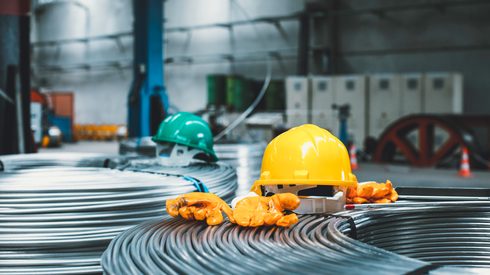Now, sources are discussing the possibility that the key point in encouraging the domestic consumption of long steel and its products does not lie exactly in the wire rod or rebar imports, but in the increasing importation of finished products.
“Brazil’s problem is not wire rods or rebars itself, but people have started importing finished products, like oval or barbed wire. The Chinese product already enters the country packaged and ready for the end consumer, which is a problem,” a seller source stated.
Other market specialists emphasized the competitive pricing of these finished products from China. This price disparity makes it increasingly difficult for local producers to compete, as Chinese products often enter the market at rates that undercut domestic offerings.
“We can’t compete with the super-competitive prices of Chinese screws, nails and wires. The market for twisted or annealed wires, once produced domestically, has now shifted entirely to imports,” a trader source said. “This trend extends to other fastening materials, reducing local production.”
“I feel that local suppliers may be increasingly avoiding the purchase of wire rod from Brazilian producers, opting instead to import the finished product,” the trader source noted.
Rise in imports of steel or iron wires
Year-to-date imports of steel or iron wires have reached 2,956.4 tonnes, an 88.8% rise from the 1,565 tonnes imported during the same period in 2023. Fastmarkets’ own data analysis on Comex Stat, a trade database from Brazil’s Industry, Development and Trade Ministry (MDIC), considered the Mercosur Common Nomenclatures (NCM) code 7313.0000 for wires.
“The importation of nails, screws and all wire rod by-products has increased. Traders or mills here almost no longer produce them; the wire drawers who used to make them now import more than 50%,” a second trader source said.
Similarly, imports of screws, nuts, hooks, nails and other fastening materials soared to 57,254 tonnes between January and July, up by 29.4% from 44,218 tonnes in the same period last year. Fastmarkets’ own data analysis on Comex Stat considered the NCM code 7318.1500 for those products.
Market participants believe this movement is bypassing the need for domestic wire rod production, which could harm the entire steel production chain, from producers to local traders and manufacturers.
“There are parts of the market that, due to these movements, are producing 50% and import the other 50%, just to avoid shutting down their factories, because the demand for these domestic fastening products is not worth it,” a second seller source in the Brazilian long steel market stated. “These imports generate unemployment and less local tax revenue.”
Another issue raised is that this influx of finished products is undermining the effectiveness of Brazil’s recent quota-tariff policy, which was designed to curb excessive steel imports and protect local industry by setting a 25% tax on steel imports exceeding set volumes.
In the first half of this year, around 79,992 tonnes of wire rods were imported into Brazil, 13.6% less than the 92,592 tonnes imported in the first half of 2023, data from the Comex Stat showed.
In June and July, the months monitored by the quota tariff, wire rod imports totaled 18,200 tonnes, down by 40.6% from 30,650 tonnes in June and July 2023.
When this story was published to the Fastmarkets platform on Thursday August 29, local importers had already consumed 95% (10,066 tonnes) of the 10,595 tonnes of wire rod reserved for import license quotas, which are supposed to feed the market until September 30.
Fastmarket’s monthly price assessment for steel wire rod (mesh quality) export, fob main port Latin America was $580-595 per tonne on August 2, unchanged from the previous report on July 5.
Brazilian market adapting quickly
This intense price competition and import movement has forced the Brazilian market to adapt quickly, sources said, despite not specifying what measures are being taken to monitor the entry of finished products.
“The market has organized itself, traders have started creating a structure to protect themselves. If this trend continues unchecked, buyers might bypass local traders altogether, ordering products directly from Chinese factories and having them shipped without any intermediary,” a market participant said.
Although there is market concern regarding the entry of these products, some report that the dominance of imported finished products is already natural in the sector, and that the growth in the consumption of foreign materials should not be surprising.
“Wire and nails for construction, for example, have seen significant infiltration of imported material for many years, and this trend is well-established. I don’t see a large increase in imported nails, for instance, as many companies still produce their own here,” a buyer source noted. “Imported products have been part of the fastening materials market for over 15 years.”
Previously questioned by Fastmarkets about the possibility of ther steel products being included in tariffs, Brazil’s MDIC reinforced that the focus is on quotas that already came into effect in June, with a potential review to be done six months from the start date.
“Until October, therefore, the focus will primarily be on monitoring the already implemented measures,” the Ministry’s communications office told Fastmarkets.




